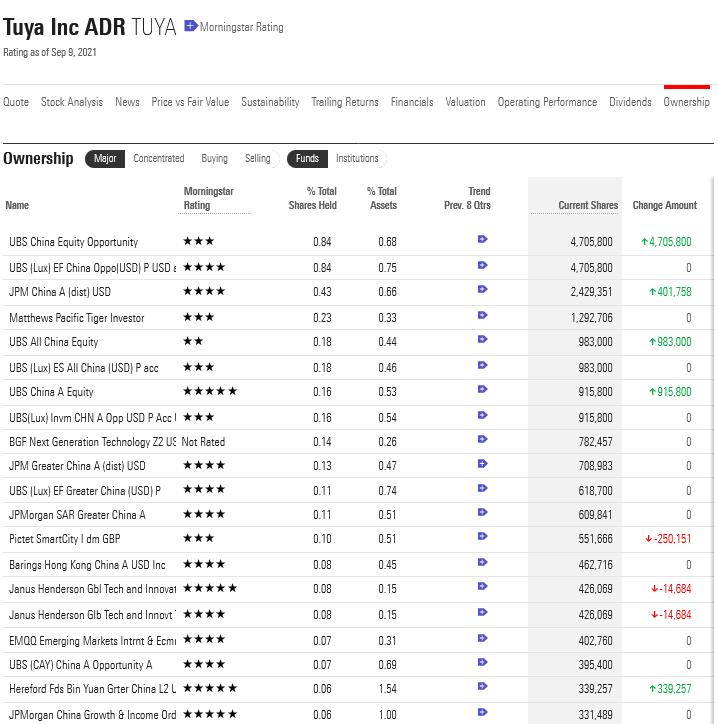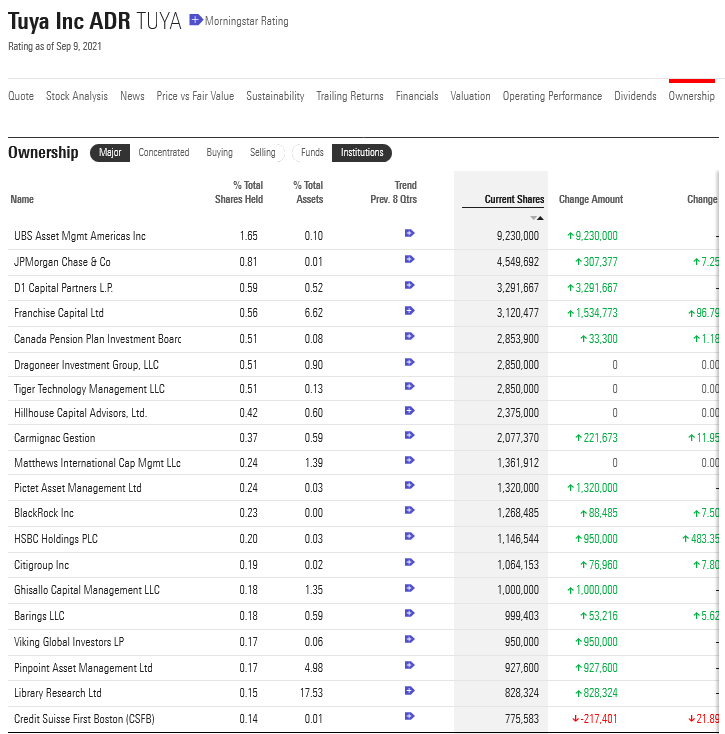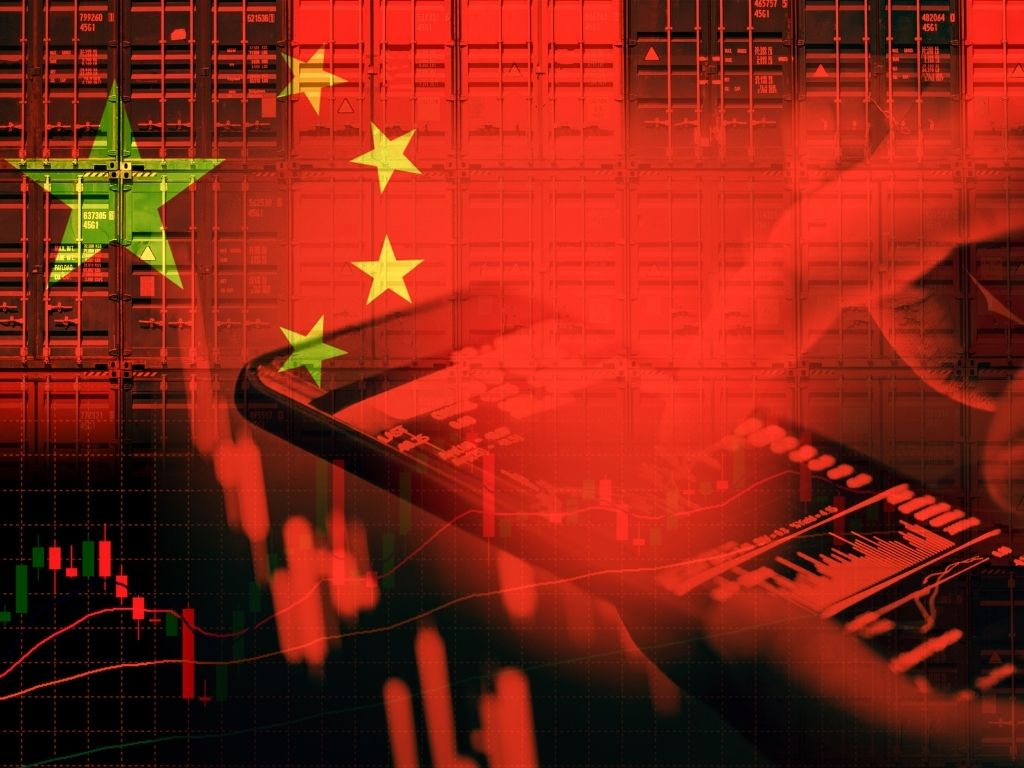A NYSE-listed Chinese tech company called Tuya has caught the unwanted attention of Sens. Marco Rubio (R-FL), Rick Scott (R-FL) and Tom Cotton (R-AL). All three wrote a letter to Treasury Secretary Janet Yellen on Thursday asking her to include Tuya on the capital markets sanctions list.
The list, officially known as the Non-SDN Chinese Military-Industrial Complex Companies List, is managed by Treasury and was created under President Biden’s Executive Order 14032. The list of companies are banned from trading on the U.S. exchanges. And American investment firms have to divest of their shares beginning August 2, 2021. The three Republican Senators want Tuya included.
The capital markets sanctions against Chinese companies was initiated under President Trump and implemented under President Biden.
The seven-year-old Tuya is a software company based in Hangzhou, China. It sells software for the Internet of Things and to Software-as-a-Service platforms, best known as SaaS. The company went public in March. It has lost around 50% of its value since. Its lead Wall Street underwriters were the Bank of America and Morgan Stanley. The company’s technology is used by Amazon Web Services, or AWS, the company said.
Tuya: Who’s invested?

Institutional investors in China’s Tuya.

Despite the share price being cut in two since March, Sens. Rubio, Rick and Scott focused on Tuya being more of a national security risk, than a financial one.
“Americans with Tuya technology in their home or workplace risk their data being directly accessible to the CCP. This is a profound, unacceptable threat. Continuing to provide Beijing a direct line to Americans’ private data would only empower an unaccountable Chinese firm and contribute to the CCP’s Military-Civil Fusion strategy, which explicitly aims to transform the PRC into the leading superpower by midcentury. It would also deepen the risk of Chinese exploitation of the IoT sector’s vulnerability to malware attacks, which criminals have already used to shut down massive portions of the East Coast’s internet access in 2016.” – letter to Janet Yellen, Sept. 8, 2021, by Sens. Marco Rubio, Rick Scott and Tom Cotton.
The threat of data falling into the wrong hands is “enormous,” the Senators wrote in their letter.
Tuya has seen dramatic growth since its founding in 2014, thanks in part to its backing from CCP-linked conglomerate Tencent, owners of famous messaging app WeChat. As of December 2020, more than 200 million devices around the world are powered by Tuya’s software, cloud technology, and applications and 5,000 companies have worked to build Tuya into their products, the letter to Yellen stated.
Companies in the IoT market, like Tuya, function by providing internet connectivity to otherwise unconnected devices. The sector has grown rapidly over the last decade, with tens of millions of Americans buying and using “smart” home thermostats, security cameras like Amazon’s Ring, lighting systems, refrigerators, and more. “American consumers’ regular usage of these technologies also means that the data the devices collect is a treasure trove, providing an extraordinarily intimate window—often complete with audio or visual recordings—into users’ households and daily routines,” the letter said, ultimately ending with a call for Yellen to include Tuya on the capital markets sanctions list.
From afar, China looks like a massive success story. But it’s rise to economic power is not fully owed to China’s top-down managerial style, or the hard work of Chinese manufacturers and entrepreneurs. A lot of it is owned to closed markets, IP theft, American multinationals turning it into the world’s manufacturing hub, and – more recently – Wall Street being allowed nearly unfettered access to China’s stock and bond markets. This is a goldmine for some, and many investment banks do not want to rock any boats in Beijing.
Earlier this month, famous investor George Soros said that one of China’s biggest benefactors, BlackRock, was “making a tragic mistake” by continuing to pump money into its companies.
Soros said that their clients will lose money and that BlackRock’s China investment push is totally against the national security interests of the U.S.
BlackRock’s Larry Fink, a man well known inside the Treasury Department, simply responded by saying that they were helping the retirement of millions of Chinese.
Meanwhile, Bloomberg, which continues to stoke the flames of an end to China tariffs and a return to normal U.S. China relations, like they were in the Obama years, said that Yellen is planning a trip to China this fall. It seems more like a trial balloon to test public reaction to the idea of Yellen going there as a first step towards the administration caving into Wall Street on capital market sanctions. Wall Street fears a retaliation is due from Beijing just as dozens of big firms, including BlackRock, are allowed to open up firms in mainland China without having to rely on a local partner. Wall Street firms hope to make money both ways: they already make millions selling Chinese investments to U.S. investors and led by BlackRock they hope to make money selling global investments to Chinese investors.
Treasury spokeswoman Lily Adams said there are “no plans for Secretary Yellen to travel to China in the fall.”













